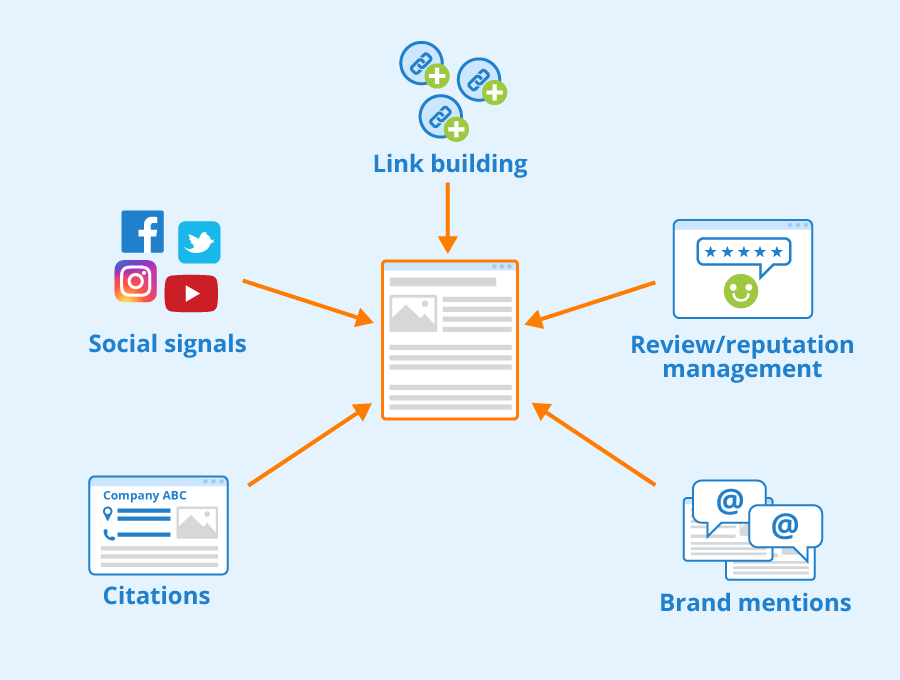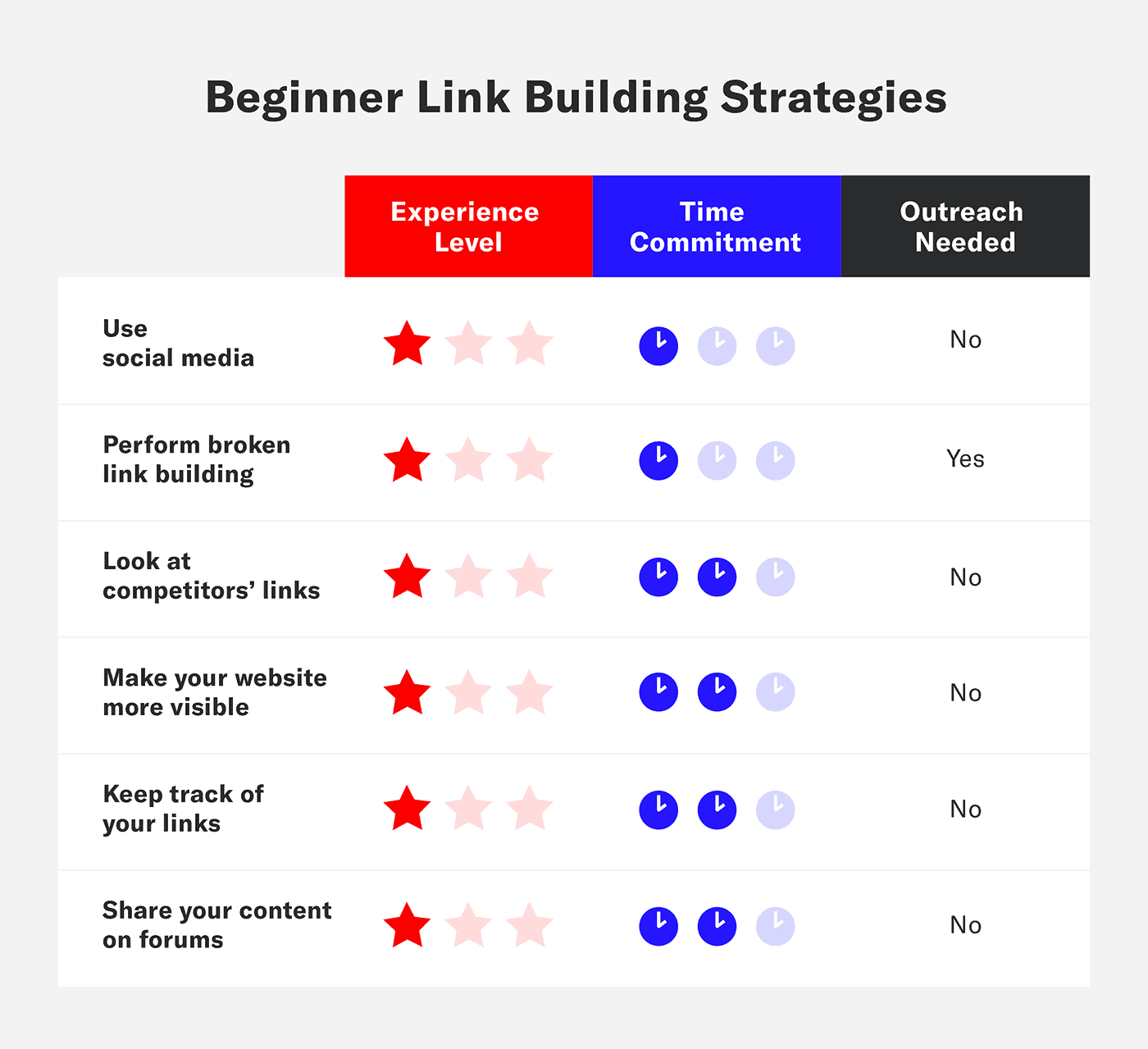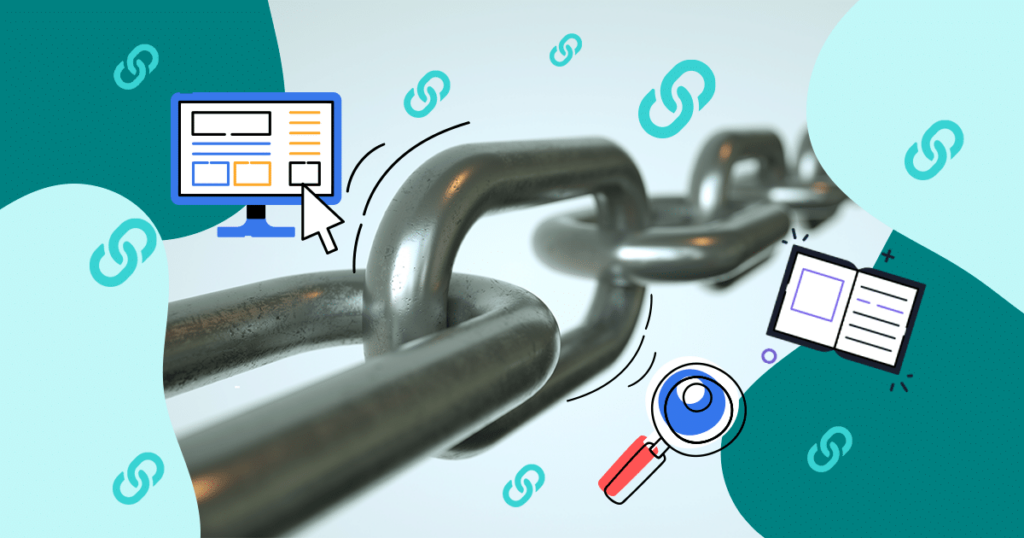Building links is crucial for improving your website’s search engine ranking. It helps drive traffic and enhances credibility.
But how do you build links effectively? Link building is an essential aspect of SEO. It involves getting other websites to link back to your site. This process can boost your search engine rankings and increase your site’s visibility. Understanding the right strategies to build links can be challenging, especially if you’re new to SEO.
In this guide, we’ll explore proven methods to help you build strong, valuable links. You’ll learn how to identify quality link opportunities, create engaging content, and reach out to other sites for collaboration. Ready to improve your site’s authority and drive more traffic? Let’s dive into the world of link building!
Introduction To Link Building
Link building is a crucial aspect of SEO. It helps improve your website’s visibility on search engines. High-quality links from reputable sites can boost your website’s authority. This can lead to higher search engine rankings. In this section, we will explore the importance and benefits of link building.
Importance Of Link Building
Search engines use links to discover new web pages. They also use links to determine how a page should rank. Websites with more high-quality links tend to rank higher. Links act as votes of confidence. They tell search engines that your content is valuable. This makes link building an essential part of your SEO strategy.
Benefits For Seo
Link building can enhance your website’s visibility. Higher visibility means more traffic. More traffic can lead to more conversions. Quality links can improve your domain authority. This can boost your site’s credibility. Link building also helps with indexing. Search engines find and index your pages faster. This can improve your site’s overall performance in search results.

Credit: www.searchenginejournal.com
Types Of Links
Building links is crucial for SEO. There are different types of links you can use to improve your site’s visibility. Understanding these types helps you create a more effective link-building strategy.
Internal Links
Internal links connect one page of your website to another. These links help users navigate your site. They also help search engines understand your site’s structure. Use relevant keywords in your anchor text. This practice improves your site’s SEO.
External Links
External links point from your website to another site. These links provide additional value and information to your readers. They also show search engines that you reference credible sources. Choose high-quality, authoritative sites to link to. This boosts your site’s trustworthiness.
Content Creation Strategies
Content creation is a vital part of link building. Using smart strategies can help you attract quality backlinks. Two effective methods are creating high-quality content and guest blogging. Let’s explore these in detail.
Creating High-quality Content
High-quality content can attract links naturally. Focus on creating content that offers value. This could be in the form of detailed guides, useful tools, or unique research. Ensure your content is well-researched and accurate. Visual elements like images and videos can make your content more engaging. Break up text with subheadings for better readability. Write in a clear and concise manner. Avoid jargon and complex sentences. Aim to solve a problem or answer a question. This will make your content more shareable.
Guest Blogging
Guest blogging is another effective strategy. Identify blogs in your niche. Reach out to them with a well-crafted pitch. Offer to write a post on a topic that fits their audience. Include a link back to your site in the post. Ensure your guest post is high quality and relevant. This builds your credibility and attracts more links. Keep your writing style consistent with the host blog. This makes your post more appealing to their readers. Monitor the performance of your guest posts. This helps you understand what works best.

Credit: www.stanventures.com
Outreach Techniques
Outreach techniques are essential for building valuable backlinks. These techniques focus on connecting with relevant websites and influencers. Effective outreach can boost your website’s authority. It can also improve your search engine rankings.
Identifying Potential Partners
Start by identifying potential partners. Look for websites in your niche. Use tools like SEMrush or Ahrefs to find these sites. Check their domain authority and relevance. High-quality sites offer more value.
Make a list of these potential partners. Organize them based on priority. Consider their audience and content. Ensure their values align with yours. This increases the chance of a positive response.
Crafting Effective Outreach Emails
Next, craft effective outreach emails. Personalization is key. Address the recipient by name. Mention their work or recent articles. This shows genuine interest.
Keep your email concise. State your purpose clearly. Explain the benefits of collaborating. Offer something valuable in return. This could be a guest post or a reciprocal link.
Include a clear call to action. Ask for a response or a meeting. Follow up if you do not hear back. Persistence often pays off.
Leveraging Social Media
Leveraging social media is a powerful strategy for building links. It allows you to reach a broad audience, share valuable content, and engage with key influencers. By effectively using social platforms, you can drive traffic to your site and improve your SEO ranking.
Sharing Content On Social Platforms
Sharing content on social platforms is crucial. It helps you gain visibility. Post regularly on platforms like Facebook, Twitter, and LinkedIn. Share your blog posts, videos, and infographics. Ensure your content is engaging and relevant.
Use eye-catching images and concise descriptions. Encourage your followers to share your content. This increases your reach and potential for backlinks. Always include a link to your website in your posts.
Engaging With Influencers
Engaging with influencers can significantly boost your link-building efforts. Identify key influencers in your niche. Follow them on social media. Like, comment, and share their posts.
Build a genuine relationship with them. Offer value by sharing their content with your audience. Over time, they may return the favor by sharing your content. This can lead to valuable backlinks and increased traffic to your site.

Credit: www.siegemedia.com
Utilizing Online Directories
Utilizing online directories is a crucial strategy for building links. These directories help increase your site’s visibility and domain authority. By placing your site in relevant directories, you enhance your chances of being discovered by potential customers. This strategy is simple and effective.
Choosing Relevant Directories
Choose directories that match your site’s niche. This ensures your site reaches the right audience. Look for directories with high domain authority. This boosts your site’s credibility. Avoid spammy or low-quality directories. They can harm your site’s reputation.
Submitting Your Site
First, gather all necessary information. This includes your site’s URL, description, and keywords. Ensure your site description is clear and concise. Use relevant keywords to improve SEO. Follow the submission guidelines of each directory. This improves your chances of approval.
Regularly check your listings. Make sure your information is up to date. This keeps your site relevant and accurate. Update your listings as needed. This maintains your site’s visibility and effectiveness.
Monitoring And Analyzing Links
Monitoring and analyzing links is crucial for your SEO strategy. Understanding your link profile helps you improve your website’s authority. It also ensures your links are relevant and high-quality. Regular monitoring can help you spot issues and opportunities.
Using Seo Tools
There are many SEO tools available for monitoring links. These tools provide data on your backlinks. They show you the number of links, their sources, and anchor texts. Tools like Ahrefs, Moz, and SEMrush are popular choices. They offer detailed insights and reports.
Using these tools, you can track your link growth over time. You can also compare your link profile with competitors. This helps you identify gaps and areas for improvement. Regular use of SEO tools keeps you informed and prepared.
Evaluating Link Quality
Not all links are equal. Evaluating link quality is essential. High-quality links come from reputable sites. They are relevant to your content. Low-quality links can harm your SEO efforts. They might come from spammy or irrelevant sites.
Check the domain authority of linking sites. Use tools to analyze their credibility. Look at the anchor text used. It should be natural and related to your content. Avoid links that seem forced or irrelevant. Regular evaluation helps maintain a strong link profile.
Avoiding Common Pitfalls
Building links is vital for improving your website’s search engine ranking. But, avoiding common pitfalls is equally important. Understanding what to avoid helps keep your link-building efforts safe and effective. Let’s explore some essential tips to steer clear of the most frequent mistakes.
Steering Clear Of Black Hat Techniques
Black hat techniques might promise quick results, but they can harm your website. These include buying links, using automated programs, or hiding links in the code. These tactics often lead to penalties and reduced rankings. Always aim for ethical link-building methods.
Quality over quantity is key. Focus on getting links from reputable sites. Build relationships with site owners for natural backlinks. Create valuable content that others want to link to. This ensures your links are both safe and effective.
Understanding Google Penalties
Google penalties can severely impact your website’s ranking. These penalties occur if you violate Google’s guidelines. Common violations include unnatural links, keyword stuffing, or duplicate content. Understanding and following Google’s rules is crucial.
Stay updated with Google’s algorithm changes. Regularly audit your links to identify any suspicious activity. Remove or disavow any harmful links. Keeping your link-building strategy clean and transparent helps avoid penalties. This maintains your site’s credibility and ranking.
Frequently Asked Questions
What Is Link Building?
Link building is acquiring hyperlinks from other websites to your own. It’s crucial for improving search engine rankings and driving traffic.
Why Is Link Building Important?
Link building enhances your website’s authority and visibility. It helps improve search engine rankings and attracts more organic traffic.
How Do You Start Link Building?
Start link building by creating quality content. Reach out to relevant websites for backlinks and participate in guest blogging.
What Are The Best Link Building Strategies?
Effective link building strategies include guest blogging, creating shareable content, and leveraging social media. Focus on earning natural backlinks.
Conclusion
Building links requires patience and consistent effort. Focus on quality over quantity. Engage with your audience through meaningful content. Connect with relevant sites and influencers. Always prioritize ethical link-building strategies. This keeps your site credible and trustworthy. Remember, strong links boost your search rankings.
Stay committed and watch your online presence grow. Keep refining your techniques. Success in link-building takes time, but it’s worth it.




